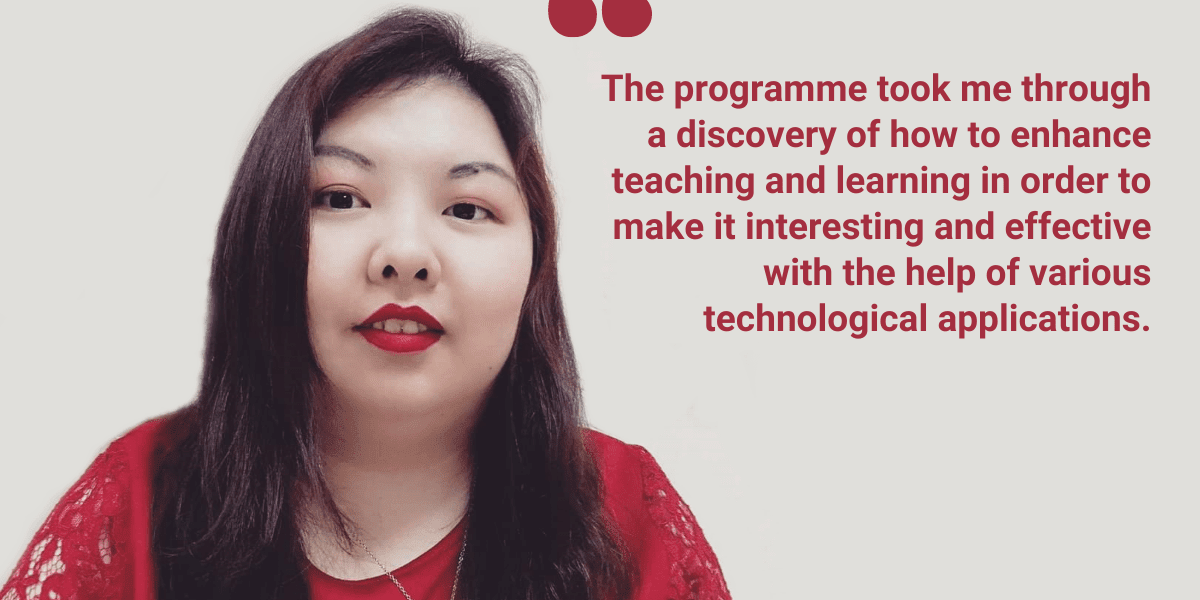Table Of Content

Georgetown University’s Master of Arts in Learning, Design, and Technology (LDT) is for individuals eager to make a difference in higher education by creating innovative learning experiences for all students. Through this program, you’ll gain the necessary knowledge and skills to become a catalyst for positive change in education. Situated in Washington, DC, our program offers unparalleled opportunities to connect and advance professionally in the fields of education and instructional design. We are proud to be the only master’s program in the world developed by a center for teaching and learning. Our cutting-edge curriculum integrates learning, design, technology innovation, learning analytics, and critical studies in higher education, delivering a comprehensive education that prepares you for the complex education landscape.
Why University of Cincinnati Online?
Learn about federal financial aid programs available for many of our degree programs. Purdue Global works with students to find ways to reduce costs and make education more accessible. Contact us to learn about opportunities to save on your educational costs. Course materialsGraduate students can purchase textbooks and other instructional materials through the University Bookstore or elsewhere online. Students should verify what materials are needed with their instructor. ELearning doesn’t have to be a content-focused experience that leaves learners overwhelmed and wondering how it all applies to them.
What to expect with UC Online’s Master of Education in Instructional Design and Technology Program
Online Master's in Instructional Technology - U.S. News & World Report
Online Master's in Instructional Technology.
Posted: Mon, 02 Jan 2017 17:37:51 GMT [source]
As a student at Georgetown, you’ll become part of the Jesuit tradition of working to make the world a better place. Our program is one of the few in the U.S. that focuses on how to address the issues of equity, access and justice in the higher education landscape. Whether you want to effect change on local or international levels, our home in DC provides numerous opportunities and connections.
What’s It Like to Learn Online?
In addition to the core courses, you will focus your instructional design and technology courses on working with adults. You'll have the opportunity to review design and development models, technology, pedagogy, and management principles and practices used in instructional design in corporations, the military, and nonprofit training environments. Knowing how to design learning experiences in today’s world (whether it be in higher education, K12, healthcare, or business) is no easy task. It requires having a full understanding of instructional design theories, practices, models, and learner needs. Organizational functions have begun to eye Agile methods as an attractive option for project management, decision making and prioritization. While eLearning teams can benefit greatly from adopting Agile, this workshop addresses specific adaptations to Agile methods proven to be effective for instructional designers and developers.

Harness technology to design effective training and development
Students will learn the design and development principles of digital applications to increase learning, productivity and support performance. The students will also explore multimedia learning theory as a framework for instructional design to facilitate the human-computer interaction. Develop, implement and evaluate multimedia instructional materials, and explore ways to bring instructional design to industries outside of the educational field.
Unveiling the Future of Education: The Learning Design & Technology Program at Loyola University Maryland
Bureau of Labor Statistics, the demand for instructional coordinators at the K-12 level is set to grow by 7% from 2021 to 2031. There is a similar need for training and development specialists in the corporate world with demand projected to increase by 8% over that same period. To an unprecedented degree, our schools, governments, and corporations are looking to emergent technologies to enhance learning environments and improve outcomes. To succeed, these efforts must be guided by empirically grounded education design theory and principles. The capstone was designed to help students develop a career plan and apply what they have learned throughout the program to their future work.
Lynchburg’s comprehensive curriculum is designed to educate and inspire, fostering a culture of inquiry and a passion for academic exploration. Here, you’ll transform educational outcomes by applying cutting-edge strategies and collaborating with educational institutions to make a significant impact at the local, regional, and even global levels. The knowledge gained through the Educational Technology program allows candidates to seek new career paths in education. Graduates from this program have the skills to become computer teachers, instructors at the community and college and university level and instructional designers.
Are the courses asynchronous? Are there any synchronous required meetings?
Our alumni members are very collaborative and enthusiastic, often providing mentoring opportunities to current students advancing through the program. They also provide supplemental professional development and webinars, as well as participate in networking events. The program duration is 5 semesters, including a required summer semester. Each semester, students enroll in two graduate courses (3 units each course). Higher education faces many challenges and opportunities—the (post-) pandemic pedagogies, equity and access, artificial intelligence, value and cost, climate change, demographic shifts, digital technologies, curricular alignment with workforce needs, etc.
Curriculum - General Program
Each evidence-based approach is defined and supported by theory and research. The course also includes best practices for designing each type of learning experience and provides real examples of each approach. Learning Experience Design Lab requires learners to apply foundational learning experience design strategies to create an instructional solution in the form of an e-learning module.

The Educational Technology track in the Instructional Design and Technology MA program requires a minimum of 36 credit hours beyond the bachelor's degree. The curriculum includes 12 credit hours of instructional technology core courses, 12 credit hours of professional specialization, nine credit hours of electives, and three credit hours of practicum. MS in Instructional Design and Technology degree-seekers have many options when it comes to choosing the program that is right for them.
Additionally, this course explores the types of learning analytics that various technologies generate and the ways in which they can be used to better understand learner progress and optimize the learning experience. This first of two foundational courses introduces Design Thinking and instructional design models, processes, and approaches. This course demonstrates how learning theories and instructional frameworks can be applied to facilitate deep learning, motivation, and engagement.
Then, 15 credit hours of department-approved electives provide the opportunity to study your topics of interest. Corporate trainers, instructional designers, e-learning managers and other corporate educators use the latest tools, strategies, processes, and practices to employ technology in corporate training and development. In doing so you become an important asset to any organization that values growth and productivity — which means job security and greater earning potential after graduation. While the name may be unfamiliar to some, the expanding field of instructional design and technology lives at the intersection of technology and education and is ideal for those passionate about educating others. From online classes to corporate training, instructional design focuses on the development of technology-based learning—both the curriculum itself and the platforms through which it is delivered. The University of Cincinnati Online’s master’s in instructional design and technology is taught by world-class professors who are experienced instructional designers and technologists.












